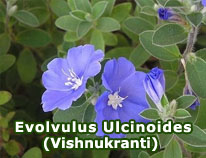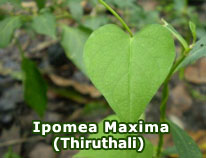The Myths of Ayurveda
March 23rd, 2007 | admin
The real origin of Ayurveda is lost in time and there are many myths, stories and legends about the origin of Ayurveda. It is today really hard to trace back to the origin of Ayurveda. Many people ascribe the origin of Ayurveda to divinity. There are others that think yoga meditation, especially kundalini meditation played an important role in the origin of Ayurveda. The most common myth is Lord Vishnu, in his first Dhavantary incarnation, transferred the knowledge to humans.
According to Ayurveda myths, knowledge of life neither has a beginning nor an end. It becomes unavailable and available to humankind at different stages of eternal cosmic cycle of creation and destruction.
Vedas, the ancient literature on Sanskrit tell the story of knowledge and life of a period more than a few thousand years ago. Veda literally means science or knowledge. Vedas are concentrated forms of knowledge, where lot of knowledge is packed into a few lines or even a word.
Among the different Vedas, we can see references to healthcare, medicines and directions to healthy living. There were a few practitioners of medicines who were also successful in gathering the healthcare and lifestyle information from the Vedas and to name it as Ayurveda. Ayus (Ayur) means life and Veda is knowledge. Thus Ayurveda is the knowledge of life. Not knowledge of medicine.
According to Hindu myths, Lord Brahma, the creator of the whole knowledge gathered knowledge from all the four directions and made it into four Vedas. Among the different types of knowledge – geometry, numerology, astronomy, geography, architecture, etc – was the knowledge of life – Ayurveda.
Lord Brahma taught Lord Indra the knowledge of life. Lord Indra then taught Ashwini Twin Gods the knowledge of life and they became the healers of gods. The knowledge then passes to Vishnu, who takes incarnation as Dhanvantary.
Lord Vishnu takes different incarnations as Dhanvantary, which makes the story of Dhanvantary confusing among even the most knowledgeable persons.
The first appearance as Dhanvantary occurs during the churning of palazhi (the mystic ocean of milk). At the end of the churning, Vishnu appears as Dhanvantary, a healthy man of 1,000 qualities. He had four arms, each bearing a pot of Amrut (divine nectar of immortality), a leech (signifying surgery), a chakra (to kill the wrong doing people) and a conch (to free an area from germs).
That was the appearance of Dhanvanatary as a God.
A king, Dirghatamas who ruled the land of Kasi once went on a deep penance meditating lord Dhanvantary. The lord was pleased with the king and agreed to be born as the son of the king. The king’s penance was for a son.
Later as the king of Kasi, Dhanvantary has written the knowledge of life in palm leaves. The royal succession continued to practice the knowledge of life. The story of Dhanvantary’s incarnation in the royal family is described in Bhava prakasa.
Another Myth on the Origin of Ayurveda tells about a group of seers, concerned about the sufferings of humankind gathered together and went on a deep meditation session. At the end of it, the combined strength of meditation helps them open the doors to wisdom about life.
The deep meditation by many seers created an atmosphere conductive to the reception of knowledge and the knowledge was transferred to palm leaves.














 Loading ...
Loading ...





